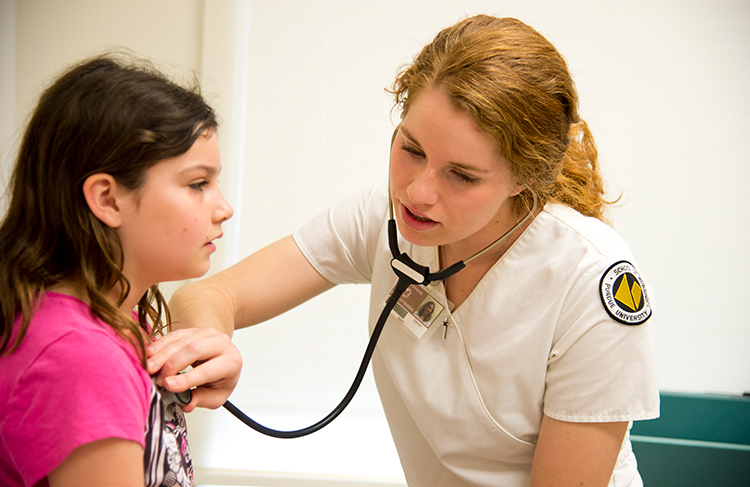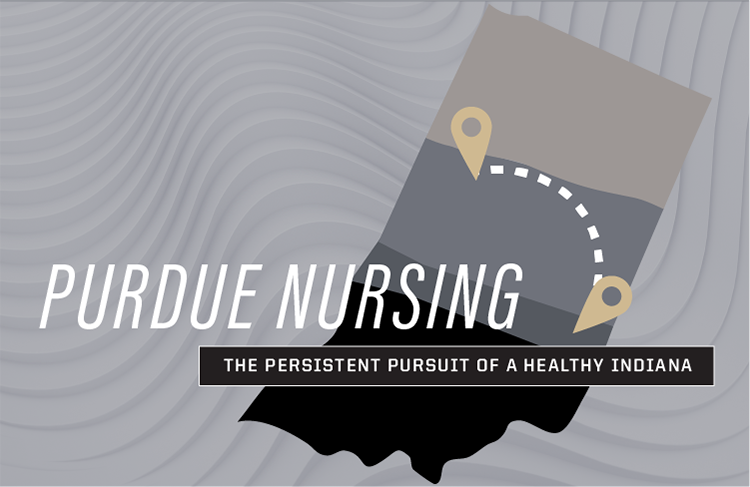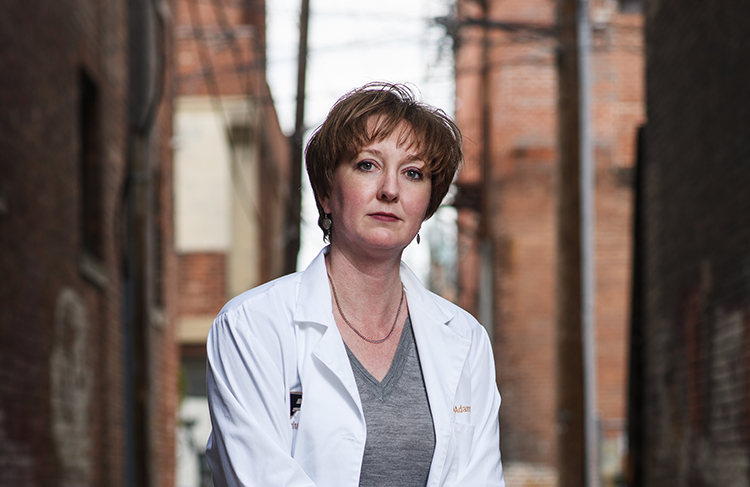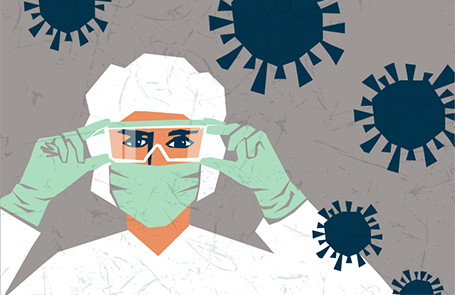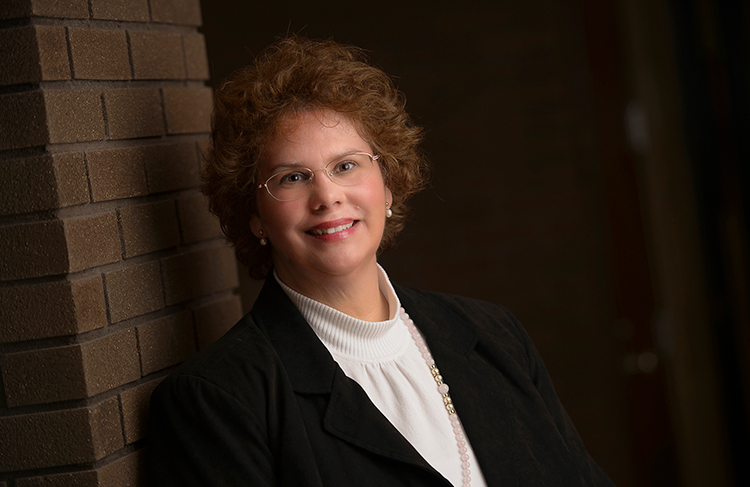Clinics mark 25th anniversary during WHO Year of the Nurse
Written by Greg McClure

As the World Health Organization celebrates the Year of the Nurse and Midwife, Purdue University’s School of Nursing persists in its pursuit of providing health care for underserved communities through its collaboration with the North Central Nursing Clinics.
WHO says that the world needs more nurses. “Nurses and midwives play a vital role in health services. … They are often the first and only point of care in their communities. The world needs 9 million more nurses and midwives if it is to achieve universal health coverage by 2030,” it says in a statement and call for a yearlong effort to celebrate the work of nurses and midwives, highlight the challenges they face, and advocate for increased investments in nursing and midwifery.
Jim Layman, executive director of North Central Nursing Clinics, sees a strong connection between the clinics, which are celebrating their 25th anniversary, and WHO’s Year of the Nurse and Midwife. He cites the nursing clinics as a good example of Purdue’s contribution to nursing.
“We’re one of the few nurse-led federally qualified health centers in the nation, filling a gap in communities that no longer have physicians or other health care providers,” Layman says. “Nurse practitioners are the primary care providers in our clinics, which are located in Delphi, Burlington, Wolcott and Monon.”
Nancy Edwards, professor of nursing and assistant head of graduate programs, says the profession of nursing has grown over the past 25 years.
“Nursing has had tremendous evolution and growth over the past few decades. We used to be viewed as doctor’s assistants — a bedside nurse or the nurse at the doctor’s office. Now we’re providing primary care,” she says. “It was the vision of Jo Brooks, a professor of nursing at Purdue, that led to the nurse-led clinics. She and I wrote the grant to start the clinics as a collaboration with St. Elizabeth Hospital in 1995. Since then we’ve continued to innovate and find ways for nurses to care for these communities.”
Providing mental health care, too
A Health Resources and Services Administration (HSRA) Advanced Nursing Education Workforce grant will help the School of Nursing take another giant leap. The grant will focus on increasing mental health competencies for students in Purdue’s four nurse practitioner programs. Another grant will also help launch a nurse practitioner residency program at Riggs Community Health Center for nurses pursing a nurse practitioner master’s degree.
“The whole premise is to increase the number of psychiatric/mental health nurse practitioners out practicing in the community,” says Edwards, who is the project director for the ANEW grant and also is director of Purdue’s adult geriatric nurse practitioner program. “The grant covers tuition for 15 NP students, allowing them to focus on completing their education faster. In return, they commit to working in rural and underserved areas, where there is a desperate need for more mental health care providers.”
The second component of the grant is enhancing mental health competencies for all nurse practitioner students, she says.
“Students have been surprised at the number of mental health issues they see in primary care,” Edwards says. “The goal is to have nurses recognize these issues in their patients and to be comfortable treating non-complicated mental health issues.”
Edwards says the overarching goal of the clinics is the health of underserved communities.
“We are serving a great need by working in these underserved areas,” she says. “Having nurse practitioners who can provide primary care to patients, including those with mental health issues, is huge. That’s all part of community care and keeping a community healthy.”
Students benefit from clinic experience
The clinics give nursing students a broad range of experience that helps prepare them for their careers.
“The foundation of nursing education is the classroom and the lab,” Layman says. “Coming into the clinics allows them to apply what they have learned and expand their skillset. By working with patients and other health care providers, they are prepared with hands-on experience when they enter the workforce.”
Kalyn Synesael, a graduate-level nurse practitioner student, says working at the Carroll County Family Health Clinic in Delphi has enhanced her education.
“Because the Delphi clinic is rural, you see people from all kinds of backgrounds and every socioeconomic situation,” she says. “I’m getting experience taking care of people at every level. You get to work with a lot of factors, like budget. A lot of patients here have limited financial resources. This taught me that you have to consider costs when you’re treating patients.
“There’s also a family feeling here. You get to know patients. I started working here in January, and I already feel like I know many of them.”
Synesael worked as a nurse in cardiology for a few years before deciding to take her next step at Purdue.
“As a nurse I would take care of patients in a hospital setting, but I was treating, not preventing,” she says. “I want to become more involved with patients from a prevention standpoint. So, I decided to become a nurse practitioner.”
Synesael is scheduled to finish her master’s degree in May and would like to work in cardiology in a clinic “like this one.”
Community, partners play key roles
The Delphi clinic recently was renovated and expanded.
“We began 25 years ago with a small building, then we went to eight exam rooms, and now we have 12 exam rooms,” Layman says. “When IU Health moved into some new office space in 2016, we moved payroll and many office functions to their old building, which freed up space for us to expand our clinical practice.”
In addition to IU Health, Purdue partners with Franciscan Health, Valley Oaks Health, Riggs Community Health Clinic, and other health care and social service agencies.
“We have strong community support,” he says. “One of the requirements of federally qualified health centers is that 51% of the board of directors has to be patients of the clinic. We’ve been lucky to have a dedicated, community-based board.”
